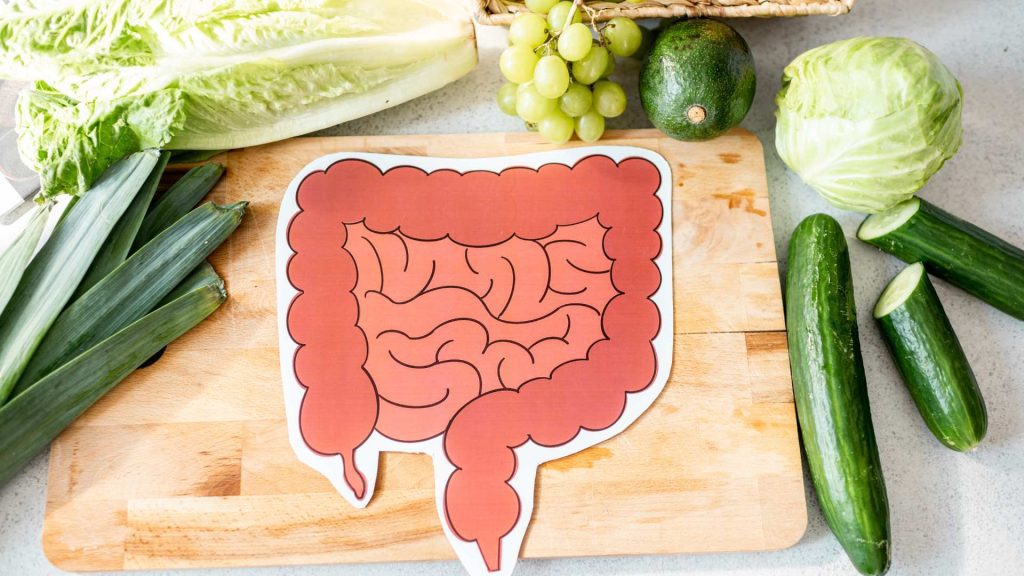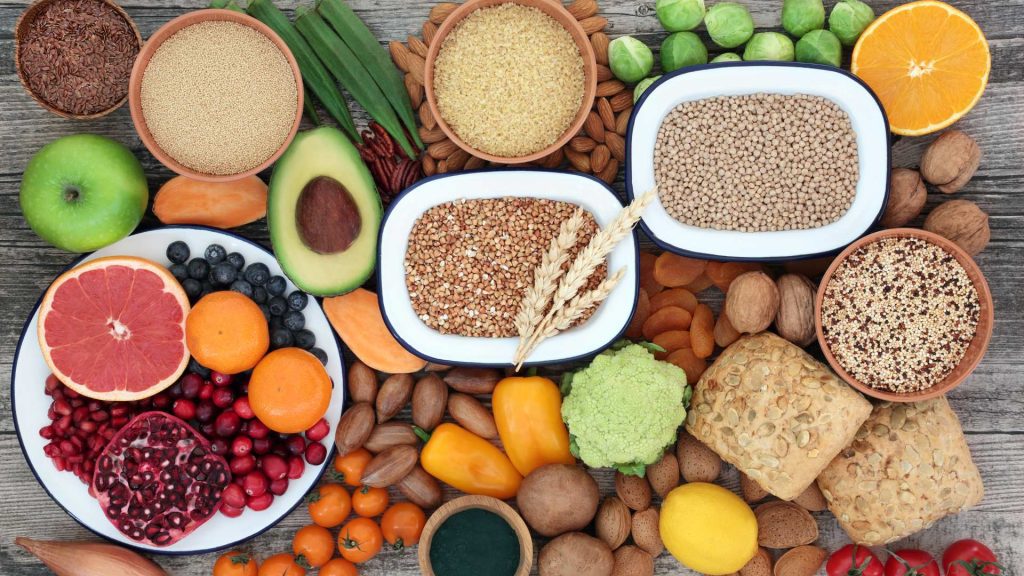Digestion begins with the anticipation of food before it even enters the mouth. We all can relate to that feeling of smelling something baking, like a lovely loaf of freshly baked bread and our mouth starts to water! When we put food into our mouth (ingestion), the process of chewing allows for the mechanical breakdown of the food into smaller, more manageable pieces. This is then mixed with the saliva in our mouth, before being swallowed and then entering into the stomach. The better we can chew our food, the more we can make things easier for the rest of our digestion!
5 Tips to Improve Digestion
Mindful eating
Often we can find ourselves rushing around, eating on the go or quickly at our desk at work. Everything seems to be completed at a faster pace in modern day life and eating has become part of this. By sitting down, relaxing and chewing food thoroughly, we can begin to adopt a more mindful approach to eating. This can allow the body to focus more of its energy on the digestion of food.
Hydration
After a night’s sleep, our body appreciates some nourishment in the form of hydration. Starting the day with a mug or two of warm water (which I like to do) can be a good way to top up our bodies’ hydration levels before breakfast.
Top Tip: I can struggle to drink water throughout the day but sipping on warm water during the day helps me to stay hydrated!
Focus on Wholefoods
Wholefoods that are rich in fibre, may help to support a healthy bowel, as well as providing some nourishment for our good gut bacteria. Processed foods are becoming more part of the modern day diet. Unfortunately, some of these foods can be more refined, and so may be much lower in fibre. Where possible, opt for wholefoods!
Movement
Physical activity helps to increase blood flow in the body, and this includes the muscles of the digestive system. The muscular contractions that occur along the digestive tract help to stimulate the movement of food.
Fermented foods
Foods that are fermented, for example; pickled foods, kimchi, sauerkraut, kombucha, apple cider vinegar, keifir and sourdough bread. These can be a great addition to the diet and can be incorporated in a variety of ways. You don’t need to include them all, even a forkful of kimchi a day. Always try to make any changes to the diet slow, low and steady.
Top Tip: If you have any underlying digestive disorders (such as ulcers), it is best to consult with a healthcare professional first!

Why is Gut Health Important?
The immune system and digestive system work closely together. The more we can provide support for our digestive health, the more we may help to nourish a stronger immunity. The beneficial “good” bacteria that live in synergy with us in our gut have numerous functions, such as providing some essential nutrients and supporting digestion. More and more studies are continuing to emerge that are looking into the numerous benefits of these “good” bacteria. Also, having good gut health gives our bodies the best opportunity to absorb as many nutrients as possible from the foods we eat.
Daily life and bodily processes can be put under pressure when our gut is out of balance.
What will help with my Digestion?
Everybody is different and the important thing is learning to understand what works for your own digestive health. Becoming aware of gut system triggers is a great starting point. This could be a food trigger or a lifestyle trigger or both. For me, I have found that keeping a food diary, even for about 2 weeks, has been an eye opening experience into learning what works well for my own body and what doesn’t.

Digestive Health and Nutrition
- Fibre – Try to include a variety of fibre rich food sources, to help cultivate a diverse community of “good bacteria”. It is very easy to pick up the same fruit and vegetables when shopping. There is nothing wrong with this, however, having a look at what is seasonal can help to bring more variety into your weekly diet;
- Probiotics and Fermented foods – Yogurt, Keifir, Kombucha, Sourdough bread, Kimchi, Sauerkraut, pickles. Getting creative with these foods at mealtimes. Top tip: I like to spoon some keifir yogurt over strawberries, topped with flaked almonds and nut butter. I enjoy this as an afternoon snack!
- Balanced diet – Eat a balanced, healthy, (minimally processed), wholefoods diet as much as possible;
- Hydration – Water helps with regular bowel movements and is also great to help soften stools and help make them easier to pass. In addition to water, add in some hydrating foods like watermelon and cucumber.
Digestive Health and Lifestyle
- Exercise – Try to include some form of movement each day. This doesn’t have to be intense exercise but finding something that works for you.
- Weight – Maintain a healthy weight;
- Reduce stress – This can feel easier said than done but it is good practice to learn how to take control of stress. Including some techniques like breath work, yoga or mindfulness may be beneficial.
- Sleep – Quality sleep is vital for so many bodily processes. Sleep is when the body has time to repair itself.
Are you interested in learning more about how to support your digestion? Why not try our self-guided Digestive Health taster course.













